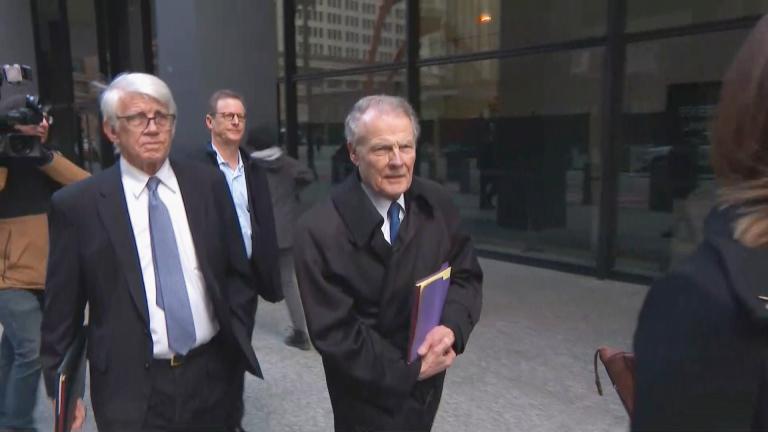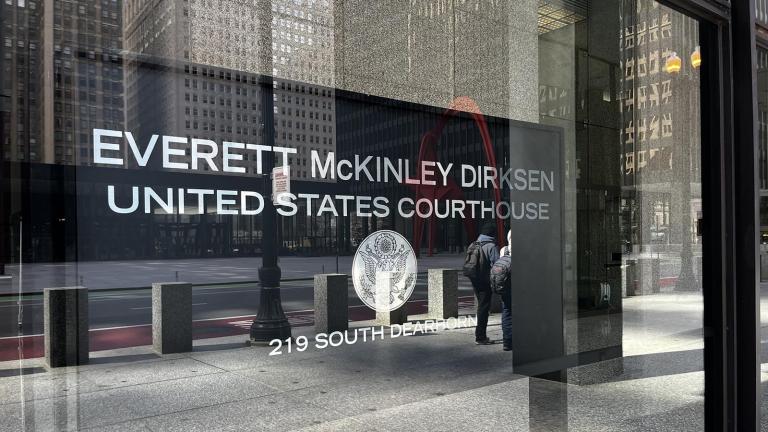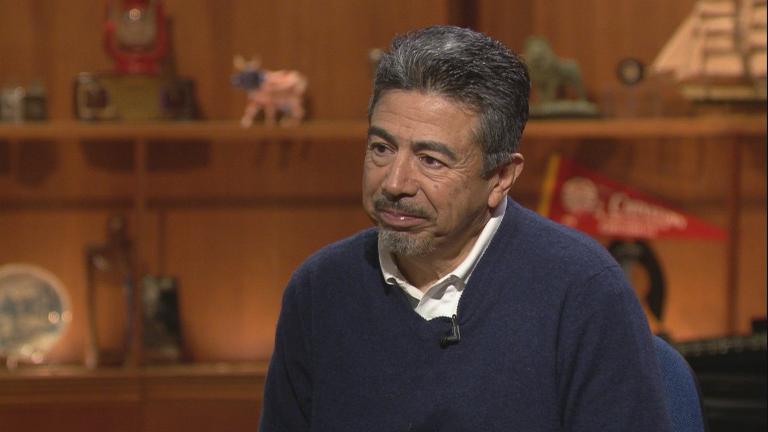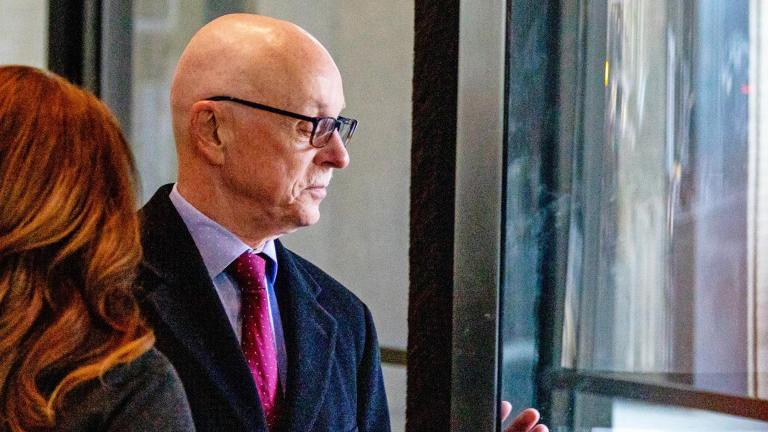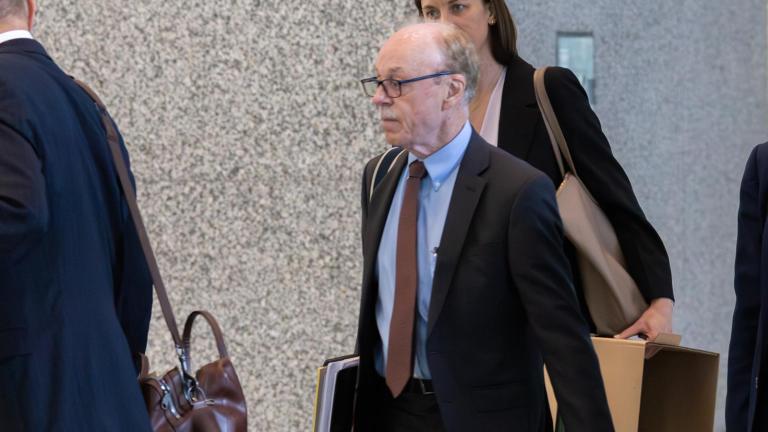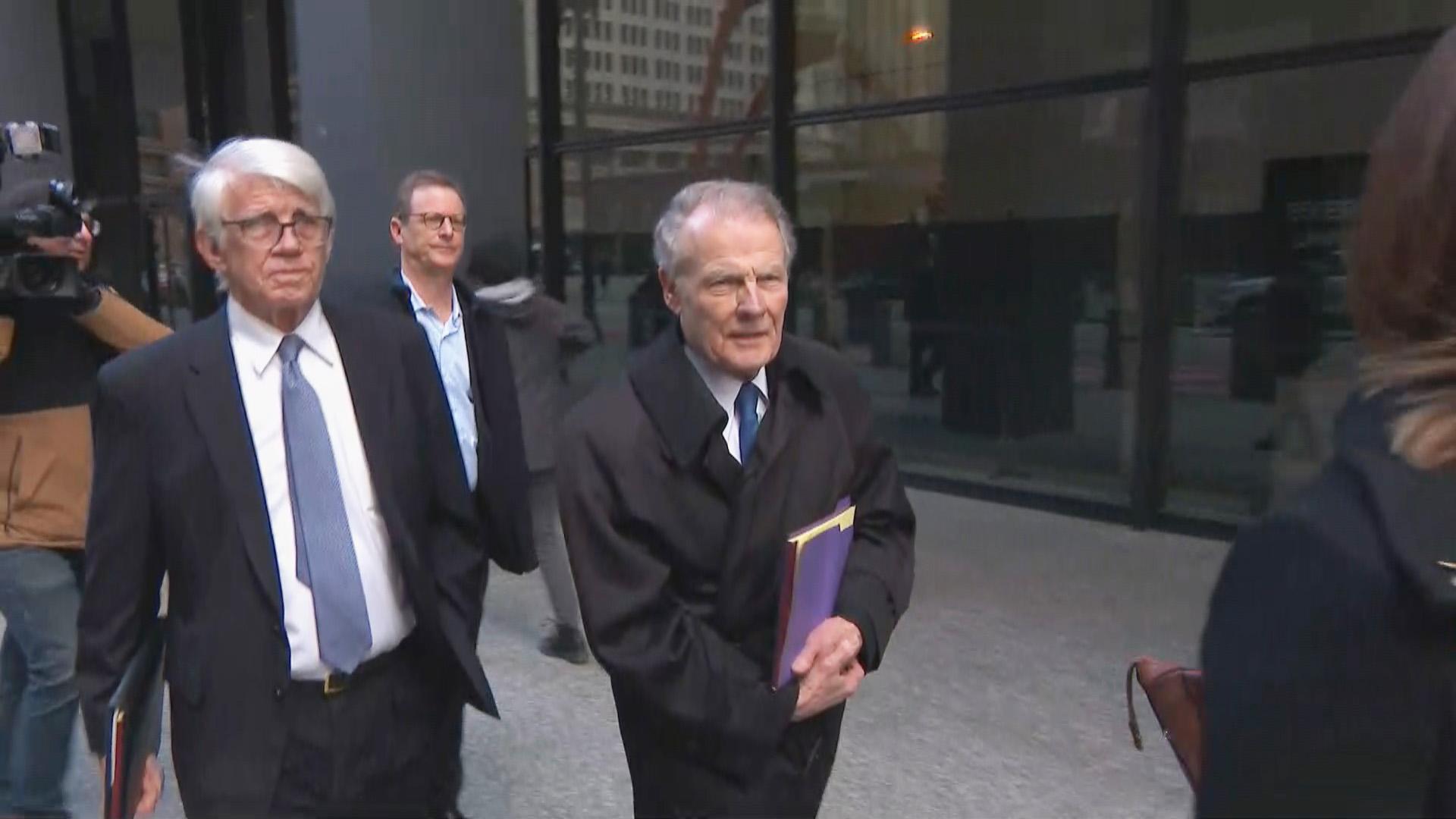 Former Illinois House Michael Madigan leaves the Dirksen Courthouse on Jan. 3, 2024. (WTTW News)
Former Illinois House Michael Madigan leaves the Dirksen Courthouse on Jan. 3, 2024. (WTTW News)
Former Illinois House Speaker Michael Madigan appeared in court in person for the first time Wednesday, as a judge pushed back his upcoming federal trial on racketeering and bribery charges to October.
Madigan was told he could appear via videoconference for Wednesday’s hearing, in which U.S. District Judge John Robert Blakey granted his request to delay his upcoming trial, moving the scheduled April 1 trial back to Oct. 8.
“It’s better to do it right than to do it twice,” Blakey said of the move.
Madigan, who was first indicted back in March 2021, made his first public comments since that time, responding to Blakey’s question about whether he agreed with his decision to push back the trial.
“Yes I do your honor,” Madigan replied.
The longtime House speaker — who is charged alongside his longtime confidant Michael McClain — is accused of participating in, and benefitting from, a variety of corruption schemes. Among the charges he’s facing are counts of racketeering conspiracy, using interstate facilities in aid of bribery, wire fraud and attempted extortion.
But the case will have to wait while the U.S. Supreme Court weighs a separate case (James E. Snyder v. U.S.) that could determine whether the federal bribery statute criminalizes only bribery or also reaches gratuities — defined as payments in recognition of actions a state or local official has already taken or committed to take, without any quid pro quo agreement to take those actions.
Madigan’s defense team argued the Snyder decision could have a “monumental impact” on this “irrefutably complex” case.
“The interests of judicial economy and fairness to the parties, particularly the defendants, dictate the need for a stay of the proceedings or, at the very least, a continuance of the trial date until after the Supreme Court renders its decision in Snyder,” attorneys for Madigan and McClain wrote in a December motion.
Blakey said that any substantial change to the existing statute could necessitate a re-trial and waste weeks or months of time for attorneys, the defendants and potential jurors.
Already, McClain and three other former Commonwealth Edison officials have been tried and convicted of conspiring to bribe Madigan to get his support on Springfield legislation favorable to the utility giant.
Those four — McClain, ex-ComEd CEO Anne Pramaggiore, retired ComEd executive John Hooker and ex-City Club of Chicago president and former ComEd consultant Jay Doherty — were each convicted of bribery conspiracy and other charges last May and were scheduled to be sentenced this month.
Instead, those hearings have been stricken after they too raised concerns over the potential impact of the Snyder decision.
McClain's attorney Patrick Cotter argued it would be “extremely unwise” to move ahead with a trial at a time when one of the statutes at the heart of the case could be changed. He said the defendants and attorneys would both face a “tremendous burden” in trying a case they know could then be re-tried.
“It’s impossible to prepare a defense if I don't know what the elements are,” Cotter said.
Blakey agreed.
“They have to know what the rules are,” the judge said, comparing the situation to that of football teams being forced to switch to baseball halfway through the game.
In responding to Madigan’s motion, Assistant U.S. Attorney Amarjeet Bhachu noted — as he did when the ComEd Four bribery defendants sought a similar delay — that the Northern District of Illinois ranks near the bottom in terms of the time it takes to resolve federal criminal cases. He argued that the public has “a strong interest in a prompt resolution to this case.” But Blakey rejected that arguement.
“There is no excess delay currently,” Blakey said, noting that court proceedings are not like a movie where someone is arrested and their trial begins in the next scene. “That’s not how things work in real life and there’s a lot that goes into the process.”
He pointed out that this is “not your average case,” and that the Northern District of Illinois is “not your average district,” when it comes to the complexity of the cases heard there.
Madigan’s defense team is still pouring over millions of pages of documents and countless recorded conversations — made by disgraced former Chicago Ald. Danny Solis — that have been turned over by the feds during the discovery process.
Solis, who agreed to aid federal investigators by recording his phone conversations from 2016 to 2018 in order to avoid prosecution for his own bribery charge, has been a key player in both the Madigan case, and the recently completed trial of former Ald. Ed Burke, who was convicted on several racketeering and bribery charges.
Madigan’s defense team said Wednesday “all signs” point to prosecutors not calling Solis as a witness in this trial, which mirrors their decision in the Burke case. But Burke’s attorney’s did call him as a defense witness in that case.
Madigan — wearing a dark suit, white shirt and blue tie — sat at a defense table and took notes during Wednesday’s hearing. McClain appeared via videoconference.

